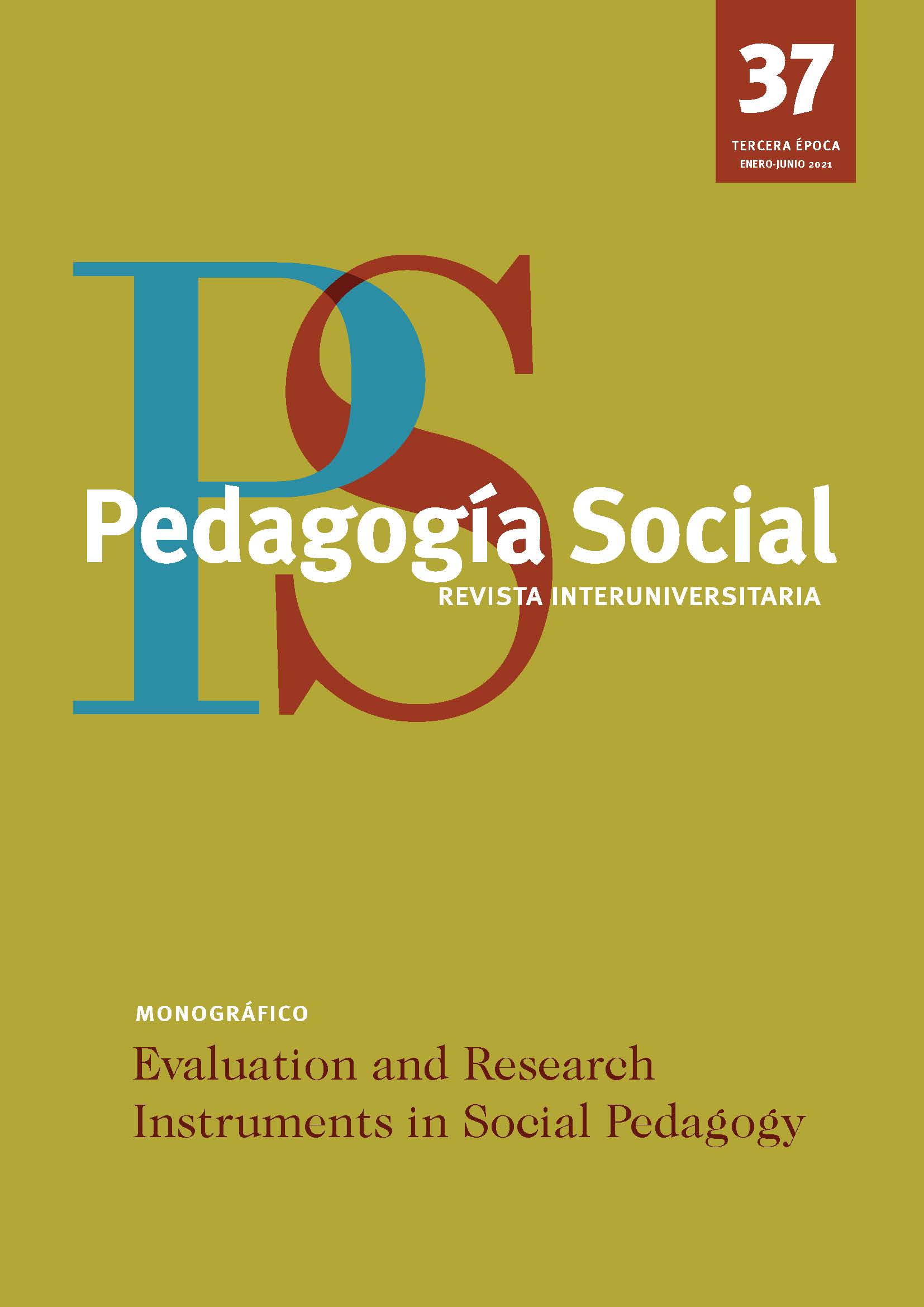Psychoeducational instruments for socio-pedagogical intervention: validation of criteria employed in the situational test for socio-emotional competence development among young people (DCSE-J)
DOI:
https://doi.org/10.7179/PSRI_2021.37.03Keywords:
situational test, socio-emotional competences, young people, criterion validity, psychoeducational instrumentAbstract
Socio-emotional competences are fundamentally important for the psychological, social and academic development of young people, and especially those in highly vulnerable contexts. It is essential that Social Pedagogy socio-educational interventions with these young people take these competences into consideration. However, there are no copyleft diagnostical instruments in this area. In this study, we present a validation of the criteria employed in the situational test for Socio-emotional Competence Development among Young People (DCSE-J), a copyleft instrument designed for 12- to 18-year-old boys and girls and adapted for use with both young people who live with their families and in care centres. A total of 409 secondary school students were asked to take the test and identify peers whose behaviour showed signs of these competences. The results showed that those students nominated most often by their peers also scored highest in the test. It was also observed that girls were nominated more often and had higher test scores. In addition, the results showed the multidimensional nature of the test items and the multilevel interrelationship of the competences, meaning that the mastery of more complex competences requires the mastery of more basic ones. The results demonstrated the criterion validity of the test and that the DCSE-J test is a valid psycho-educational evaluation instrument for measuring socio-emotional competences among young people. This, in turn, allows for specific pedagogical intervention that addresses the specific socio-emotional competences of the group.
Downloads
Downloads
Published
How to Cite
Issue
Section
License
Copyright (c) 2021 Pedagogía Social. Revista Interuniversitaria

This work is licensed under a Creative Commons Attribution-NonCommercial-ShareAlike 4.0 International License.
Copyright and right to archive
The published version of the articles can be self-archived by their authors in open access institutional and thematic repositories. However, Pedagogía Social. Revista Interuniversitaria must authorize partial or global reutilisation on new papers or publications.
Published papers must be cited including the title of the journal Pedagogía Social. Revista Interuniversitaria, issue, pages and year of publication
Ethical responsibilities
Pedagogía Social. Revista Interuniversitaria does not accept any material that has been previously published in other documents or publications. Authors are responsible for obtaining the required permissions for partial or global reproduction any material from other publications, and to correctly quote its origin.
Pedagogía Social. Revista Interuniversitaria is obliged to detect and report fraudulent practices.
Only those who have intellectually contribute to the development of the paper must appear as authors.
The journal expects authors to declare any commercial partnership that might entail a conflict of interest with respect to the submitted article.
Authors must mention in the article, preferably in the “methodology” section, that the procedures used during the samplings and controls have been made after getting informed consent.
The journal will not use any received contribution in a way other than the goals described in these guidelines.
Copyright Notice
© Pedagogía Social. Revista Interuniversitaria. Papers published in both the printed and online versions of this Journal are property of Pedagogia Social. Revista Interuniversitaria, being required to cite the source in any partial or total reproduction.
Unless otherwise stated, all content of this electronic journal is distributed under "Creative Commons Attribution-Non commercial 3.0 Spain" (CC-by-nc) license for use and distribution. The informative version and the legal text of this license is available here. This has to be expressly stated in this way when necessary.






